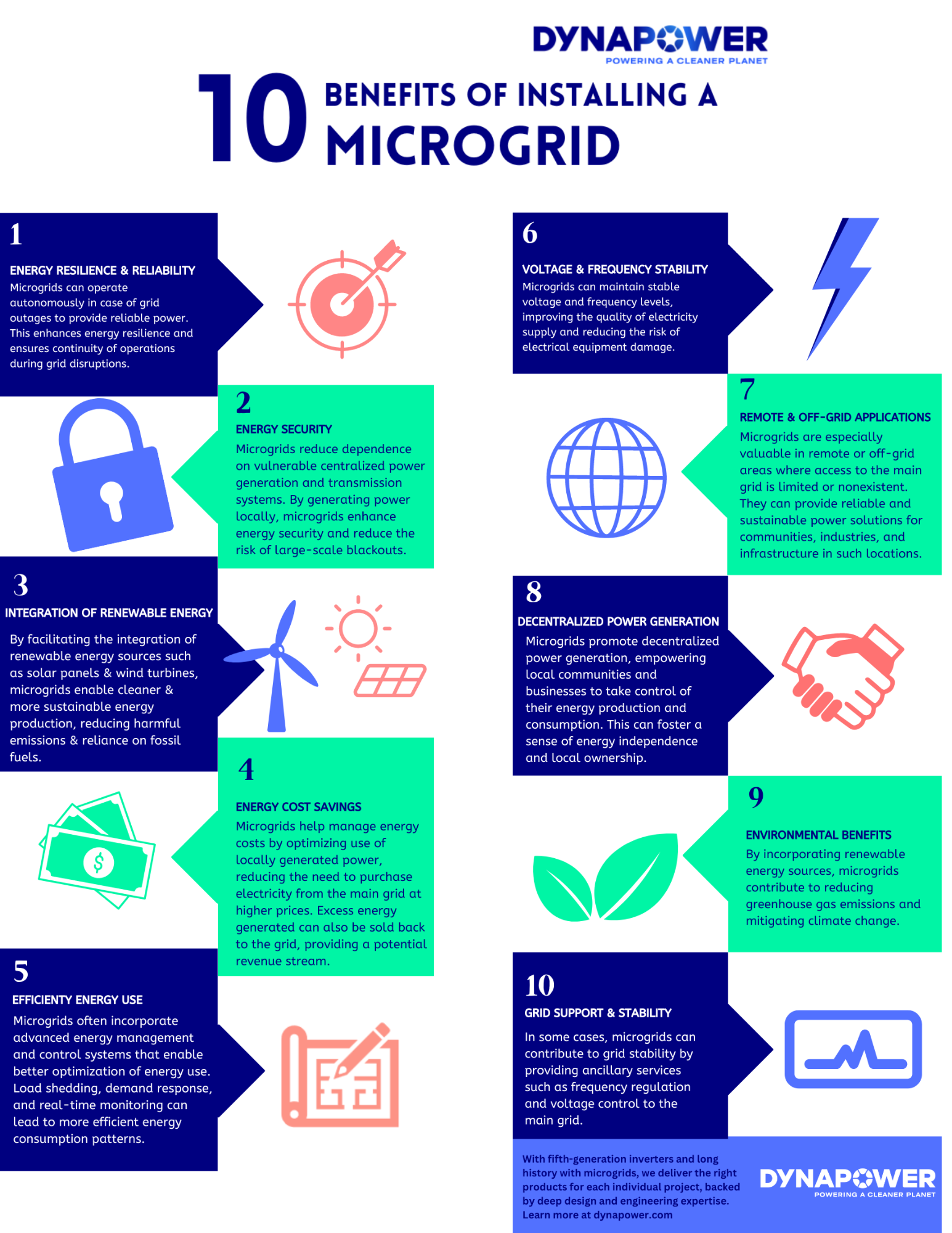A microgrid is a localized energy system that can operate independently or in conjunction with the main power grid. It consists of distributed energy resources (DERs) such as renewable energy sources, energy storage systems, and advanced control systems. The main benefits of a microgrid include:

1. Energy Resilience and Reliability
Microgrids can operate autonomously in case of grid outages, providing a reliable source of power to critical facilities like hospitals, emergency centers, and military installations. This enhances energy resilience and ensures continuity of operations during grid disruptions.
2. Energy Security
Microgrids reduce dependence on centralized power generation and transmission systems, which can be vulnerable to natural disasters, cyberattacks, and other disruptions. By generating power locally, microgrids enhance energy security and reduce the risk of large-scale blackouts.
3. Integration of Renewable Energy
Microgrids facilitate the integration of renewable energy sources such as solar panels, wind turbines, and biomass generators. This enables cleaner and more sustainable energy production, reducing greenhouse gas emissions and reliance on fossil fuels.
4. Energy Cost Savings
Microgrids can help manage energy costs by optimizing the use of locally generated power, reducing the need to purchase electricity from the main grid at potentially higher prices. Excess energy generated by the microgrid can also be sold back to the grid, providing a potential revenue stream.
5. Efficient Energy Use
Microgrids can maintain stable voltage and frequency levels, improving the quality of electricity supply and reducing the risk of electrical equipment damage.
6. Voltage and Frequency Stability
Microgrids can maintain stable voltage and frequency levels, improving the quality of electricity supply and reducing the risk of electrical equipment damage.
7. Remote and Off-Grid Applications
Microgrids are especially valuable in remote or off-grid areas where access to the main grid is limited or nonexistent. They can provide reliable and sustainable power solutions for communities, industries, and infrastructure in such locations.
8. Decentralized Power Generation
Microgrids promote decentralized power generation, empowering local communities and businesses to take control of their energy production and consumption. This can foster a sense of energy independence and local ownership.
9. Environmental Benefits
By incorporating renewable energy sources, microgrids contribute to reducing greenhouse gas emissions and mitigating climate change.
10. Grid Support and Stability
In some cases, microgrids can contribute to grid stability by providing ancillary services such as frequency regulation and voltage control to the main grid.
Learn more about Dynapower’s Microgrid Solutions on our Technology page.